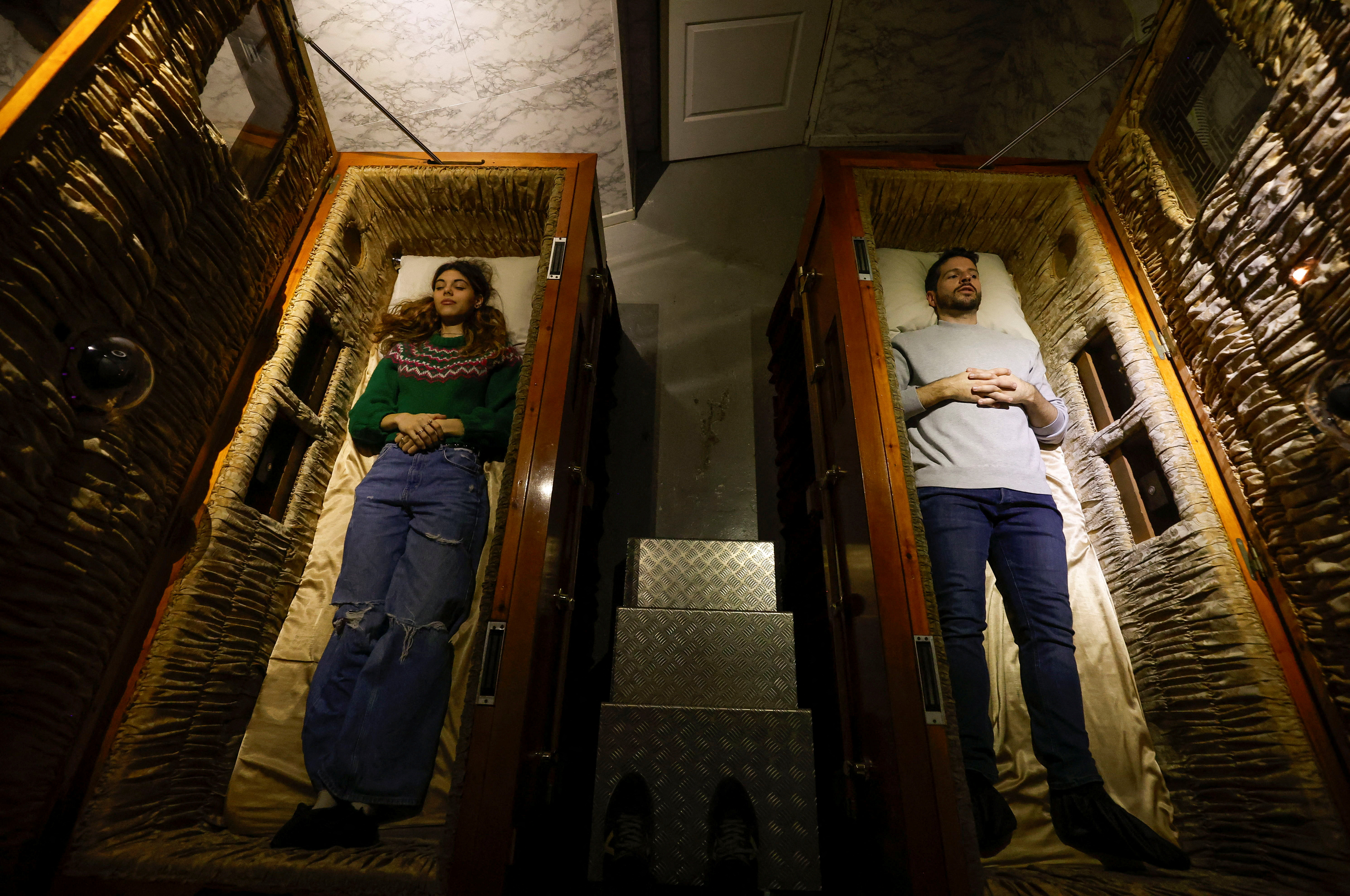Escape Room in Minneapolis-- A Perfect Task for Any Type Of Event
Escape Room in Minneapolis-- A Perfect Task for Any Type Of Event
Blog Article
Team Approaches: Just How to Team up Effectively in an Escape Room
Teams must proactively listen to each participant's understandings, designate duties that line up with private strengths, and maintain regular check-ins to make certain focus and stop redundancy. By cultivating an atmosphere that values communication and adaptability, groups can dramatically heighten their efficiency and success rates.
Establish Clear Interaction

To facilitate clear interaction, it is essential to assign a central factor of call for information circulation. This role involves summarizing searchings for and proposed approaches to ensure everybody remains on the exact same web page. In addition, embracing an organized technique to conversations can prevent disorderly exchanges. Quick, focused updates from each team member can keep the team informed without overwhelming them with information - best escape room.

Designate Roles Purposefully
While clear interaction establishes the structure for effective teamwork, appointing functions tactically ensures that each staff member's strengths are used effectively. In a retreat room scenario, the time-sensitive and intricate nature of obstacles requires a well-organized strategy to task delegation. By recognizing and leveraging individual competencies, groups can optimize their analytical capabilities and enhance general efficiency.
First, evaluate the distinct abilities and characteristics of each individual. For instance, somebody with an eager eye for detail might master discovering surprise objects, while a logical thinker might be much better suited to fixing challenges - best escape room. It's equally essential to have a leader that can look after progress, manage the timeline, and make definitive phone calls when needed. This role usually requires strong business and social abilities.
Second, make certain that functions are versatile and versatile. As new obstacles emerge, the team should be able to pivot, reallocating tasks as needed. This versatility aids maintain momentum and prevents bottlenecks that could happen because of rigid role jobs.
Inevitably, a critical strategy to duty project not only makes best use of the toughness of each group participant yet likewise promotes a natural atmosphere, driving the team in the direction of a successful getaway.
Utilize Diverse Abilities
Acknowledging and harnessing the varied abilities within your team can dramatically raise your efficiency in a retreat space. Each team participant brings one-of-a-kind strengths to the table, and effectively leveraging these capacities can quicken analytic and enhance general additional hints efficiency. A team member with solid logical skills could stand out at decoding complicated codes or patterns, while another with keen empirical capacities may rapidly detect hidden hints that others may forget.
Effective communication is vital to utilizing these diverse skills. Urge employee to voice their insights and ideas immediately, guaranteeing that all prospective options are considered. This inclusive method promotes a vibrant setting where creativity and vital reasoning can prosper. Additionally, assigning tasks that line up with each member's toughness can protect against bottlenecks and ensure that progress is continuous.
Moreover, diversity in abilities usually equates to variety in assuming styles, which is indispensable in a retreat room setup. While some obstacles may require rational reasoning and precision, others could take advantage of creative and association of ideas. By identifying and leveraging this variety, teams can deal with a more comprehensive variety of challenges better, thereby raising their possibilities of an effective escape.
Manage Time Efficiently

First, go to these guys allocate initial mins for a fast study of the space. Recognize noticeable challenges and separate tasks based on staff member' strengths, making certain that nobody is still. Establish inner time checkpoints to review development occasionally; for instance, objective to have half the problems addressed by the mid-point of the game. This technique can aid maintain the group concentrated and protect against time from slipping away undetected.
Additionally, stay clear of tunnel vision. If a challenge is taking as well long, revolve team members or carry on to another obstacle, returning later with fresh perspectives. Interaction is critical-- keep everybody upgraded on solved puzzles and continuing to be tasks to stay clear of redundant efforts.
Last but not least, utilize any type of hints or ideas moderately yet purposefully - best escape room. Knowing click for info when to ask for help can save useful time. By sticking to these time monitoring concepts, teams can substantially improve their chances of an effective and pleasurable retreat space experience
Debrief and Mirror
Representation is a crucial aspect of team growth and improvement in the context of retreat spaces. Once the challenge is finished, whether effectively or otherwise, it is vital for the group to engage in an organized debriefing session. This process allows employee to examine their performance, recognize strengths, and determine locations for improvement.
Begin the debrief by reviewing what went well. Highlight certain instances of reliable interaction, analytic, and partnership. Recognizing these positive actions strengthens them and encourages their repeating in future challenges.
Following, address the challenges encountered. Discuss minutes of complication, miscommunication, or ineffective strategies. Encourage an open and positive dialogue where group participants can share their perspectives without worry of objection. This fosters a culture of constant enhancement and knowing.
Final Thought
In conclusion, successful cooperation in a retreat space is predicated upon clear communication, calculated duty tasks, the efficient utilization of varied abilities, and efficient time monitoring. By producing a natural and flexible group atmosphere, the probability of successfully fixing challenges and achieving the objective of getting away the room is substantially improved.
Report this page